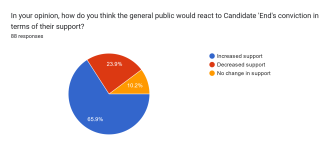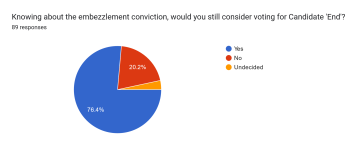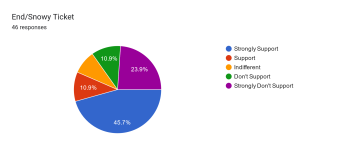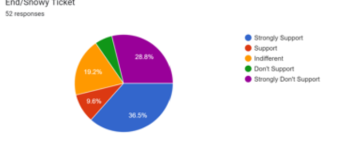- Joined
- Jan 7, 2024
- Messages
- 774
- Thread Author
- #1
IN THE FEDERAL COURT OF THE COMMONWEALTH OF REDMONT
CIVIL ACTION
CIVIL ACTION
xEndeavour (Represented by Dragon Law)
Plaintiff
v.
MilkCrack
Defendant
COMPLAINT
The Plaintiff complains against the Defendant as follows:
On the evening of 02/02/2024, at 9:47 PM EST, the defendant, known as "MilkCrack," published a so-called election poll titled "Would you still vote for End knowing he got convicted of embezzlement?" on the official Discord "News" channel. The defendant also shared this “google form” under other channels without announcing it as an official poll in that channel. This so-called poll, containing misleading inquiries about the plaintiff, falsely asserted, "Are you aware of a recent legal conviction of Candidate 'End' for embezzling $140,000?" Following the poll, the defendant issued an official press release, encouraging the public to exploit the legislation known as the "Defamation Act October 2020” and target policy makers. The defendant's actions constituted a clear act of defamation under the provisions of the Defamation Act 2020, as they purposefully disseminated false and unprivileged statements of fact that negatively impacted the plaintiff's reputation. Employing an election poll to conceal the false information qualifies as libel, a published false statement damaging to a person’s reputation. Subsequently, the defendant edited the poll, altering the description to read, "Disclaimer: this is a completely hypothetical poll about a hypothetical scenario," well after its initial posting. This modification was an attempt to obscure the dissemination of false information to over fifty-two (52) members of the Redmont Discord. The defendant, in his capacity as a Senator, not only deserves liability for defamation but also for the public dissemination of inaccurate information and subsequent attempts to conceal it after numerous members had engaged with the poll. Such actions aimed at spreading public misinformation and undermining a public election warrant legal scrutiny and consequences. The defendant's attempt to use a piece of the Defamation Act to justify his attack on the plaintiff is clear Mischief of the law itself.
I. PARTIES
1. xEndeavour, a reputable Senator - the Plaintiff.
2. MilkCrack, the Defendant.
II. FACTS
- In a blatant act of character assassination, the Defendant, MilkCrack, maliciously published a so-called election poll with false information targeting the Plaintiff, xEndeavour. (Exhibit A)
- The so-called election poll included false and damaging statements, such as an untrue claim that xEndeavour was convicted of embezzling $140,000. (Exhibit B)
- The defendant tried to cover up the false information well after many members of the discord had responded to the poll by altering the poll description. (Exhibit C & C2)
- The defendant shared false information through an election poll. (Exhibit D & D2)
- The defendant is attempting to interfere with a presidential election by spreading false information about a presidential candidate.
- The defendant shared the so-called poll link on other discord channels without defining if it was or was not an election poll therefore it wasn’t considered an election poll.
- The defendant sought to harm my client by attempting to exploit the legal framework of the defamation act. (Exhibit E)
- The Plaintiff's defeat in the presidential election can be directly attributed to the dissemination of false information by the Defendant..
III. CLAIMS FOR RELIEF
1. The Defendant's libelous and defamatory statements written within the online forum constitute a violation of defamation laws, causing irreparable harm to xEndeavour's reputation as a Presidential Candidate.
a. The libel claim is substantiated as follows: The Defendant's statements were widely published within the online forum, satisfying the element of publication. These statements included false facts about xEndeavour, fulfilling the requirement of a false statement of fact. The significant harm caused to xEndeavour's reputation is evident, meeting the criteria for harm to reputation. Furthermore, the intentional and deliberate nature of the Defendant's actions demonstrates fault, as they purposely engaged in libel with the aim of defaming xEndeavour's candidacy in the Presidential Election.
2. The Defendant's actions amount to intentional infliction of emotional distress, humiliation, and a deliberate attempt to interfere with xEndeavour's candidacy in the Presidential Election. This interference is specifically executed through the publication of false statements in various forms, including documents, signs, newspapers, and other physical communications.
3. The Defendant deliberately engaged in libel by intending to defame xEndeavour's candidacy in the Presidential Election. This intention was manifested through the strategic exploitation of defamation law, encouraging citizens to use this law to attack policy makers.
4. The Defendant's dissemination of false information is asserted to have substantially contributed to xEndeavour's loss in the Presidential Election, resulting in emotional harm, financial harm, and a loss of enjoyment.
5. The false information disseminated by the Defendant through the election poll and subsequent actions had a tangible impact on voter perception. Numerous reactions from voters documented in online forums, public discussions reflect a noticeable shift in sentiment.
6. Concrete evidence and data indicate a noticeable shift in public opinion following the dissemination of false information, causing a lack of voter trust during the presidential election: The intentional spread of false information by the Defendant led to a discernible change in the public's perception of the Plaintiff. This shift in opinion is substantiated by concrete evidence such as polls, surveys, and public reactions captured in various forums. The resulting lack of voter trust directly impacted the fairness of the electoral process, compromising the integrity of the presidential election and constituting grounds for a claim of relief.
7. The timing of the false information release was strategically planned, aiming to inflict maximum damage on the Plaintiff's candidacy during key phases of the election campaign: The deliberate release of false information at strategic junctures in the election campaign reveals a calculated effort by the Defendant to exploit vulnerable moments in the Plaintiff's candidacy. This timing not only demonstrates an intention to cause harm but also points to a premeditated strategy to undermine the Plaintiff's chances of success. Such calculated actions during pivotal campaign phases constitute a significant violation, warranting a claim for relief.
8. The competitive landscape of the election was influenced by the false information, altering the overall dynamics and negatively affecting the Plaintiff's standing: The false information propagated by the Defendant played a pivotal role in shaping the competitive landscape of the election. By introducing misleading elements, the Defendant altered the overall dynamics, creating an uneven playing field. This manipulation directly contributed to a negative impact on the Plaintiff's standing and distorted the democratic process. The intentional interference in the competitive nature of the election serves as a substantial basis for the claim of relief sought by the Plaintiff.
9. The Plaintiff's electoral defeat carries profound repercussions directly attributed to the deliberate and malicious actions of the Defendant. The intentional dissemination of false information significantly influenced public opinion, eroding voter trust during the presidential election. This shift necessitated increased financial and temporal resources for the Plaintiff's campaign, exacerbated by the Defendant's calculated efforts to strategically damage the candidacy during critical phases. The emotional toll of the loss was further intensified by the Defendant's intentional release of false information, contributing not only to the electoral defeat but also to heightened emotional distress for the Plaintiff. The Defendant's manipulation of the competitive landscape directly impacted the Plaintiff's standing, ultimately depriving them of the opportunity to assume the presidency. The Defendant's orchestrated campaign of false information, strategic timing, and manipulation formed the catalyst for the electoral loss, inflicting financial, emotional, and opportunity costs upon the Plaintiff and serving as the basis for the claims for relief in this case.
IV. PRAYER FOR RELIEF
The Plaintiff seeks the following from the Defendant:
1. Consequential Damages:
a. $50,000 for emotional distress: The Defendant, with intent, inflicted severe emotional distress upon my client during the crucial phases of the presidential campaign, adversely affecting mental well-being.
b. $35,000 for public humiliation: The Defendant intentionally subjected my client to public humiliation, causing reputational harm and emotional anguish.
c. $35,000 for The Loss of Enjoyment in Redmont: The Defendant's actions led to a tangible loss of enjoyment in Redmont, directly impacting my client's quality of life.
d. $250,000 for substantially contributing to the loss of an election, claiming that the Defendant's deliberate and malicious spread of false information, constituting outrageous conduct, significantly influenced the election outcome, directly harming the client's chances of success, and denying the opportunity to serve as president:
i. The Defendant's calculated campaign of false information, constituting outrageous conduct, not only substantially contributed to the electoral loss but also denied my client the opportunity to assume the presidency. This intentional interference goes beyond the financial, emotional, and reputational damages suffered, representing a significant denial of the chance to fulfill a civic duty and contribute to the community. Additionally, the Loss of Enjoyment in Redmont is exacerbated by the thwarted opportunity to serve in the highest office, further justifying the increased compensation sought.
2. Punitive Damages: $85,000 for disseminating false statements targeting a presidential candidate: The Defendant, leveraging his senatorial position, abused his authority by disseminating false information to undermine my client's presidential campaign. This deliberate act warrants punitive damages.
a. Attempted Cover-up: An additional amount to be determined by the court, reflecting the severity of the Defendant's attempt to conceal his actions after undermining the election process.
3. Legal Fees: 20% of the awarded amount: The Plaintiff seeks reimbursement for legal fees incurred during the pursuit of justice in this matter.
Witnesses:
xEndeavour
Snowy_Heart
Senate Members
By making this submission, I agree I understand the penalties of lying in court and the fact that I am subject to perjury should I knowingly make a false statement in court.
DATED: This 17th day of February 2024
Evidence:




